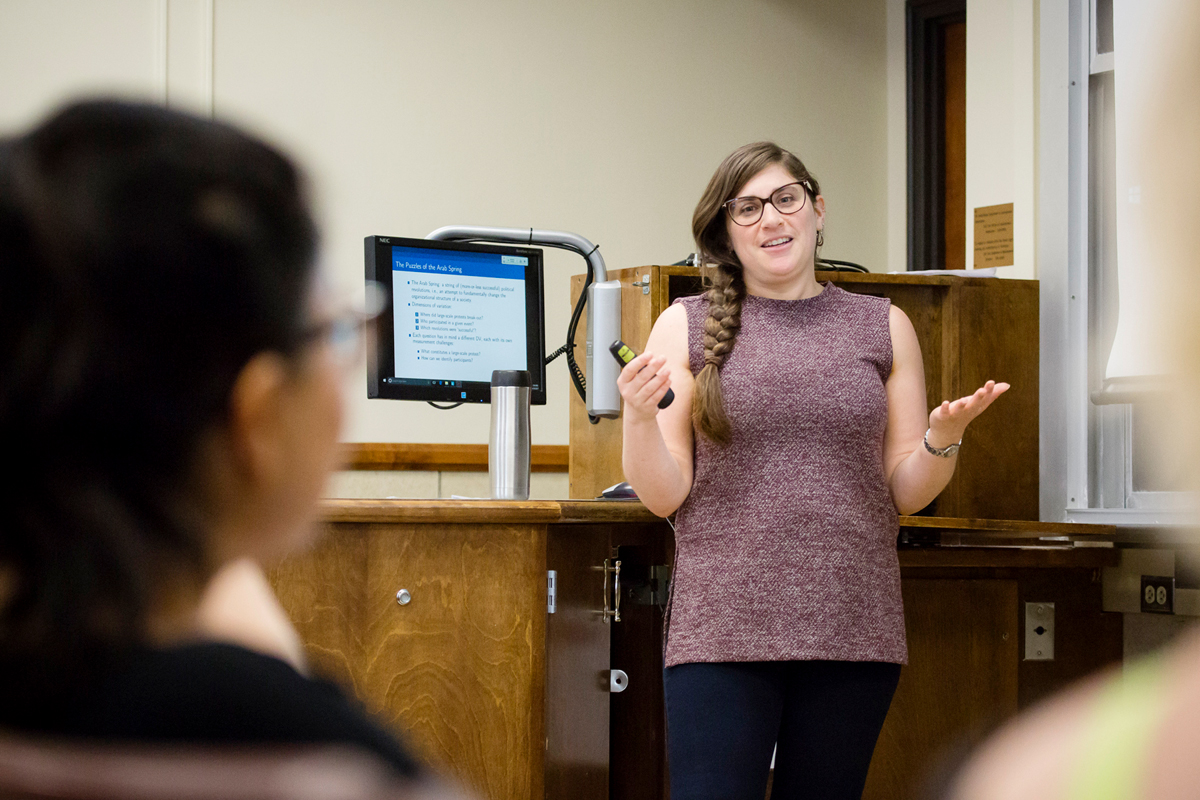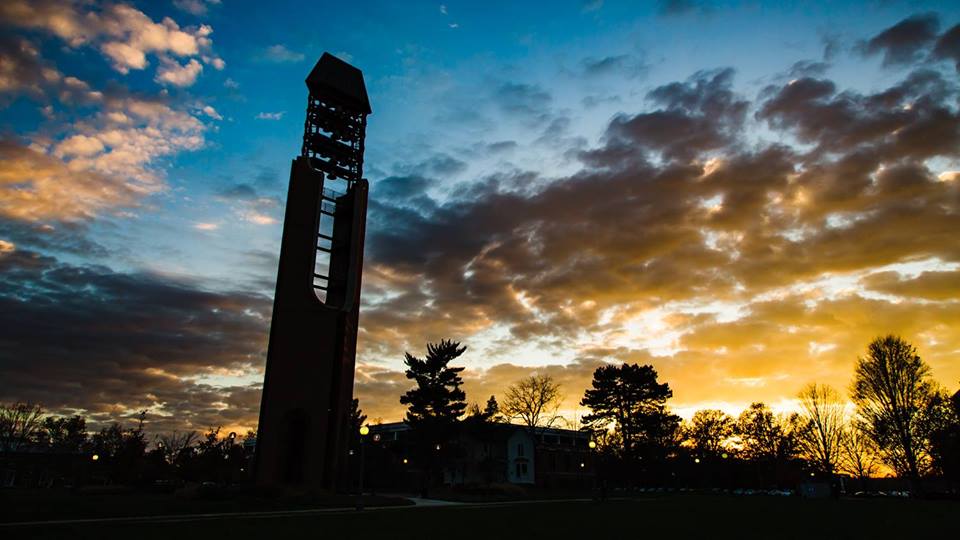Political Science
Political Science combines the rigor and logic of natural science and mathematics with the aesthetic grandeur of modes of inquiry more characteristic of the humanities. Students are exposed to different ways of thinking and develop the capacity to reason analytically, as well as the ability to write succinctly. Also, in studying politics, students wrestle with important questions about power and authority in human relations.
Political Science helps students acquire a broad understanding of government and politics, political behavior, and public policy, as they develop mastery in one or more of the subfields of the discipline.
Provides students with a broad understanding of government and politics, political behavior, and public policy, both in the US and around the world.
Focuses on the study of mass behavior and explores questions regarding how and why citizens form political attitudes and beliefs, how they engage with politics and the issues of identity.
Aims to provide students interested in careers in public life with an informed appreciation for American democracy, the values and structures on which it is based, and the challenges and opportunities it faces in the 21st century.
The study of interaction across borders of nation-states. Students explore how global, regional and domestic factors influence relations among states as well as non-state actors in the interstate system.
Teaches students about how power, law, and ideas about justice shape political life. Courses cover questions concerning the procedures for social and legal change, the status of citizens in social and political institutions in society, and the ways that ideology and identity categories shape the pursuit of equality and justice.
Explores political institutions and processes and how and why they work as they do. Students study institutions such as the presidency, Congress, courts, the bureaucracy, and political parties, with a focus on their organizing and important patterns of behavior within them.
Compares internal political dynamics and patterns of political behavior in the world's more than 200 countries. Major comparative themes include democracy, dictatorship and regime change; political institutions; voting behavior, attitudes, and the creation and dissemination of political information; religious and ethnic identity politics; political economy of development and developing countries; social change and political violence; and the impact of globalization and transnational forces such as migration.
- PS 100—Intro to Political Science
- PS 101—Intro to US Gov & Pol
Students should consult with an academic advisor regarding course selection prior to the advanced registration period.
Political Science can lead to careers in a variety of areas including politics, government agencies, law, and non-profit work.
- Able to develop & market ideas
- Analytical thinking
- Computer literate
- Decision-making
- Interact with diverse populations
- Leadership abilities
- Oral & written communication
- Problem-solving
- Research skills
- Team worker
- Understanding of community needs
- Work well under pressure
| With Bachelors Degree: |
|
| Additional Education/Experience Required: |
|
- Participating in undergraduate research
- Interning with a public official with Illinois in Washington
- Earning distinction by writing a senior thesis
- Applying for a study abroad experience
- Utilizing resources of The Career Center
- Joining a Registered Student Organization (RSO) related to this major, such as:
- Model United Nations: provides opportunity for students to learn about the purpose, structure, and history of the United Nations through open forum discussion of issues pertaining to real world scenarios.
- Political Science Club: informs and fosters interest in politics and current events. Our bipartisan stance allows us to enliven the political climate on campus through informational sessions, debates, guest speakers, etc.
- The Association of Minorities in Political Science (AMPS): aims to provide professional development, academic support and mentorship to historically underrepresented groups in the discipline. The group connects political science students with the resources to pursue research, scholarship and career opportunities.
For further information about political science, make an appointment to see an advisor at http://go.illinois.edu/psadvising


